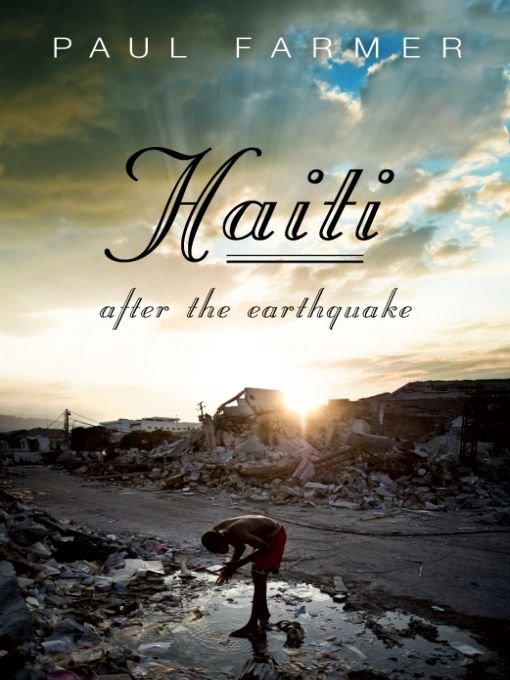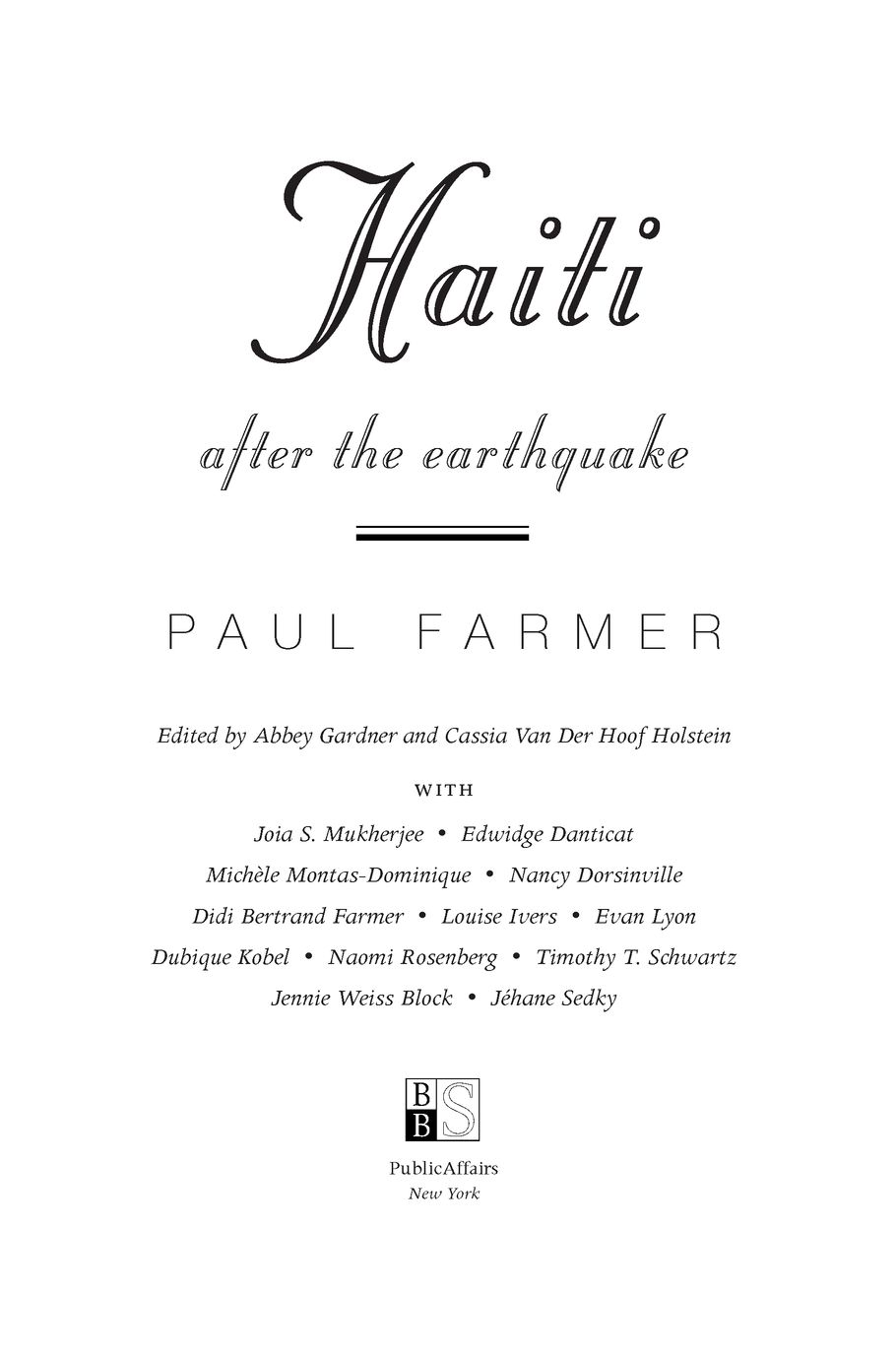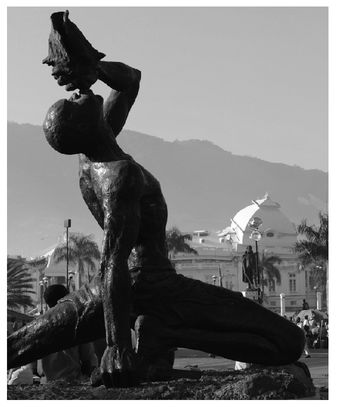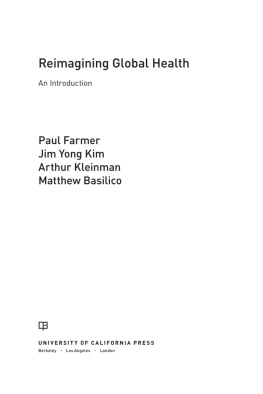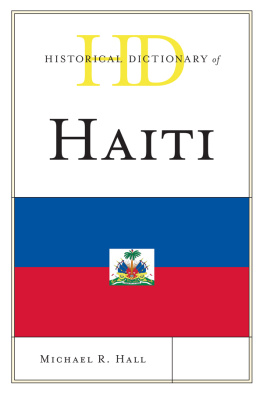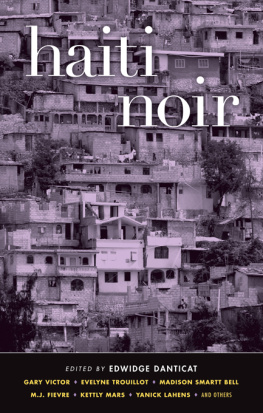Table of Contents
To Al and Diane Kaneb,
and all those who stand with the Haitian people
Then Jesus cried out again in a loud voice and breathed his last.
At that moment, the curtain of the temple was torn in two,
from top to bottom. The earth quaked, and the rocks were split.
The centurions and those with him who were keeping watch of Jesus,
saw the earthquake and what took place and they were terrified ...
Matthew 27:5052, 54, Palm Sunday Liturgy
The dead are always looking down on us, they say.
While we are putting on our shoes or making a sandwich,
they are looking down through the glass bottom boats of heaven
as they row themselves slowly through eternity.
They watch the tops of our heads moving below on earth,
and when we lie down in a field or on a couch,
drugged perhaps by the hum of a long afternoon,
they think we are looking back at them,
which makes them lift their oars and fall silent and wait,
like parents, for us to close our eyes.
The Dead, Billy Collins
NG MAWON
Haiti was founded by a righteous revolution in 1804 and became the first black republic. It was the first country to break the chains of slavery, the first to force Emperor Napoleon to retreat, and the only to aid Simn Bolvar in his struggle to liberate the indigenous people and slaves of Latin America from their colonial oppressors. Tragically, this history of liberty and self-determination has drawn two centuries of political and economic ire from powerful countries resulting in policies which have served to impoverish the people of Haiti.
Feared by Thomas Jefferson for their successful uprising; extorted by France in 1825 for 150 million francs to compensate the loss of the Empires propertyboth slaves and land(a debt the Haitian people completed paying, with interest, more than a century later); occupied by the U.S. military between 1915 and 1934 to stifle European influence in the Western Hemisphere; and disrespected in their quest for democracy by an unrelenting series of dictators and coup dtats backed by Western countries: the free people of Haiti have been continually re-shackled politically and economically.
In the wake of the January 12, 2010, earthquake, Haitis history of unrelenting struggle for justice is its greatest resource. This history, as Haitians remind us, is what makes Haiti mighty: mighty without material wealth, without natural resources, without arable land, without arms.
Amidst the rubble of the houses, buildings, and schools, and in front of the once grand National Palace, stands Ng Mawonthe symbol of Haiti. Ng Mawon at once embodies the marooned man, the runaway slave, and the free man. He symbolizes the complex history of the Haitian people: stolen from Africa, marooned on an island and liberated through a brave and radical revolution. Shackles broken, machete in hand, the free man does not hide; rather he blows a conch to gather others to fight for the freedom and dignity of all people. For the self-evident truththat all men are created equal. Ng Mawon is the indefatigable spirit of Haitis people, a people profoundly and proudly woven to their history.
When I arrived in Haiti on Thursday, January 14, 2010, I asked my friend who was driving, Kot Ng Mawonwhere is the free man? Li la he saidhe is here. And as we rounded the corner behind Champs Mars, the plaza in front of the devastated palace where thousands had already made their homesand remain todaythere, rising from the dust of the still trembling earth, stood the statue of Ng Mawon. I was drawn by the image out of the car and as I stood, weeping, an old woman put her arm around me; she too was crying. I said, Ng Mawon toujou kanp!!the free man is still standing!! And she replied, powerfully, Cheri, Ng Mawon pap jamn krazmy dear, the free man will never be broken. It is with this surety that we must stand with Haiti, a country whose spirit and people will never be broken, and work in solidarity toward the future the Haitian people deserve.
Joia S. Mukherjee
Haiti
after the earthquake
WRITING ABOUT SUFFERING
Some years ago, after two decades of witnessing and writing about epidemic disease and violence of all types, I set out to write a book based on some lectures about violence and medicine that Id given at the University of Rochester. The title of the book was going to be Swords of Sorrow, from a Gospel line (Luke 2:35): Mary learns that her soul will be pierced by a sword of sorrow because she is willing to be a vessel of grace. I liked the alliteration. But I never finished that book. What was the point, I worried, of writing another book about the suffering caused by war and genocide and other misfortunes natural and unnatural?
I thought again about that truncated project shortly after an earthquake struck Haitis capital city on January 12, 2010. Preliminary estimates of the dead ran to six figures. The immediacy of rescue and relief soon gave way to a series of questions about the dimensions of what had happened, about why Haiti had been particularly vulnerable to such a disaster, and about how to respond to the unfolding humanitarian crisis (to use the jargon of the day). Suffering is never just pure suffering; it occurs in a particular place and time. My book would have examined histories of suffering in Haiti, Guatemala, and RwandaHaiti being the place that has taught me the most.
Knowledge of Haiti might not help a trauma surgeon attend to broken bodies pulled from the rubble. But deep familiarity with the place helped frame answers to some of the questions posed above and also helped guide actions in the aftermath of the quake and during the reconstruction that would follow. The relevant knowledge needed to be historically deep (because the damage caused by the quake and the responses to it were rooted in Haitian history) and geographically broad (because Haiti had for centuries been caught up in a transnational economic and political web, a condition very much on display before and after the quake). This may sound academic. I didnt want to write a dispassionate study of the Haitian earthquake. Instead, I wanted to offer an account of a difficult time; to bear witness.
Bearing witness surely has a certain value, especially if it is linked to goodwill efforts to prevent unnecessary suffering caused by war or disease or insufficient preparation for natural disasters. Documentation by eyewitnesses can serve to inform people who are not on the scene but are in a position to help or hinder subsequent interventions. But was it appropriate for a physician, an American at that, to speak for the victims? Many in academia would argue vehemently that only the victims could speak for themselves, and that anyone who presumed to speak on their behalf would rob them of their agency. However, this is not always true: as far as the earthquake goes, the chief victims voices were stilled forever. Seeking to echo and amplify (to paraphrase Haitis former President Jean-Bertrand Aristide) the voices of those we encountered as well as those silenced was and remains our principal interest in writing about violence of all sorts.

